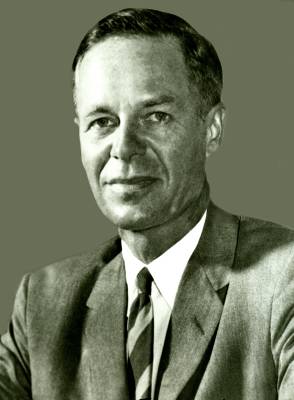
The United States secretary of state (SecState) is a member of the executive branch of the federal government of the United States and the head of the U.S. Department of State.

The assistant to the president for national security affairs (APNSA),commonly referred to as the national security advisor (NSA),is a senior aide in the Executive Office of the President,based at the West Wing of the White House.

The Bureau of Indian Affairs (BIA),also known as Indian Affairs (IA),is a United States federal agency within the Department of the Interior. It is responsible for implementing federal laws and policies related to Native Americans and Alaska Natives,and administering and managing over 55,700,000 acres (225,000 km2) of reservations held in trust by the U.S. federal government for indigenous tribes. It renders services to roughly 2 million indigenous Americans across 574 federally recognized tribes. The BIA is governed by a director and overseen by the Assistant Secretary for Indian Affairs,who answers to the Secretary of the Interior.

Charles Woodruff Yost was a career U.S. Ambassador who was assigned as his country's representative to the United Nations from 1969 to 1971.

Loy Wesley Henderson was a United States Foreign Service Officer and diplomat.

David Maclain Hale is an American diplomat and career ambassador,who previously served as the United States Under Secretary of State for Political Affairs. He is currently a Distinguished Diplomatic Fellow at the Wilson Center,on detail from the Department of State.

Samuel Winfield Lewis was an American diplomat. During a lengthy career with the United States Department of State,he served as Assistant Secretary of State for International Organization Affairs (1975–1977),U.S. ambassador to Israel (1977–1985) and Director of Policy Planning (1993–1994). As ambassador to Israel,Lewis played a major part in brokering the Camp David Accords between Israel and Egypt. He also headed the United States Institute of Peace from 1987 through 1993.

Robert Halsey Pelletreau Jr. is an American former diplomat who was United States Ambassador to Bahrain (1979–1980),Tunisia (1987–1991),and Egypt (1991–1993),as well as the former Assistant Secretary of State for Near Eastern Affairs. He currently sits on the U.S. Advisory Council of the Israel Policy Forum. He is also a member of the American Academy of Diplomacy and Council on Foreign Relations.

James Daniel Howard was Special Assistant to President of the United States Ronald Reagan from July 1986 to February 1988,United States Assistant Secretary of Defense for Public Affairs from February 1988 to May 1989 and Under Secretary of the Navy from 1989 to 1993.
Eric David Newsom is an American diplomat and State Department official.

Marshall Green was an American diplomat whose career focused on East Asia. Green was the senior American diplomat in South Korea at the time of the 1960 April Revolution,and was United States Ambassador to Indonesia at the time of the Transition to the New Order. From 1969 to 1973,he was Assistant Secretary of State for East Asian and Pacific Affairs,and,in this capacity,accompanied President of the United States Richard Nixon during President Nixon's visit to China in 1972.
William Garton Bowdler was an American diplomat.

Robert Forbes Woodward was an American diplomat who focused on U.S. relations with Latin America. He served as United States Ambassador to Costa Rica from 1954 to 1958,Ambassador to Uruguay from 1958 to 1961,and Ambassador to Chile in 1961.

Roy Richard Rubottom Jr. was an American diplomat,most notable for being Assistant Secretary of State for Inter-American Affairs from 1957 to 1960,a post in which he played a major role in engineering the United States' response to the Cuban Revolution.

The Foreign Affairs Policy Board is an advisory board that provides independent advice and opinion to the secretary of state,the deputy secretary of state,and the director of policy planning on matters concerning U.S. foreign policy. The board reviews and assesses global threats and opportunities,trends that implicate core national security interests,tools and capacities of the civilian foreign affairs agencies,and priorities and strategic frameworks for U.S. foreign policy. The board meets in a plenary session several times a year at the U.S. Department of State in the Harry S. Truman Building.

The presidential transition of John F. Kennedy began when he won the 1960 United States presidential election,becoming the president-elect of the United States,and ended when Kennedy was inaugurated on January 20,1961. Kennedy had become president-elect once the election results became clear on November 9,1960,the day after the election.

The presidential transition of Dwight D. Eisenhower began when he won the United States 1952 United States presidential election,becoming the president-elect,and ended when Eisenhower was inaugurated on January 20,1953.

George Leon-Paul Weaver was an American labor leader,active in promoting civil rights both in the US and internationally. After serving as Assistant Secretary of Labor for International Affairs in both the Kennedy and Johnson administrations,he was elected chair of the governing body of the International Labour Organization,a United Nations body,in 1968. He was the first American to be named "Honorary Commander" in the Order of the Defender of the Realm,a Malaysian federal award for meritorious service to the country.
















